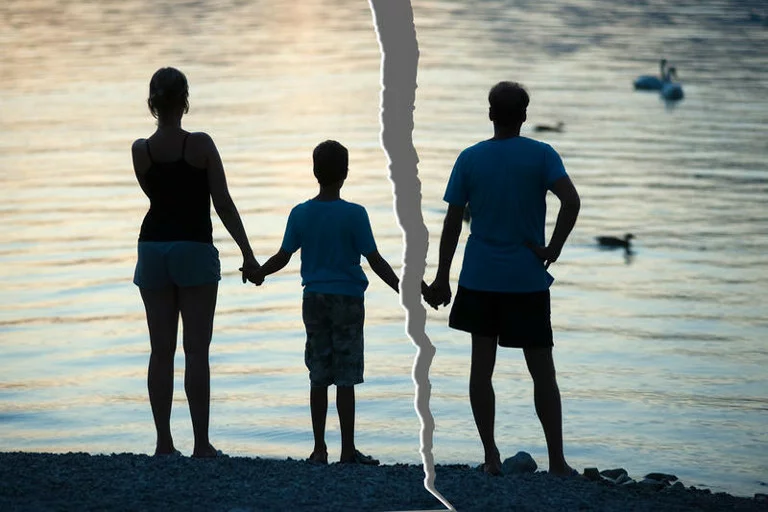Ice addiction among Australians continues to wreak havoc on families throughout the country. Often those in the grip of addiction aren’t eager to go to rehab, but this doesn’t mean that treatment can’t be effective, especially when it is long-term.
Across Australia, families are grappling with the serious and grim effects of ice addiction. A recent analysis showed that methamphetamines are the most consumed illicit drug in Australia, with Aussies consuming a staggering 11 tonnes of the substance each year. The past five years have seen ice use spread from urban into rural areas, with devastating impacts on users and those that love them.
Out of this troubling situation, more and more people are finding their way to rehab. While some recognise their struggles independently and enter of their own choice, others are compelled to go involuntarily via court order, or pressured by family and friends. In fact, most people in active addiction do not want to go to rehab. Despite this resistance, there are some strong reasons why a push to treatment can still be effective in addressing ice addiction.
Starting Out: When a Loved One is Resisting Ice Addiction Treatment
It is very common for a person in the throes of methamphetamine addiction to refuse treatment, even in cases where they acknowledge that they have a problem. Addiction reroutes key neural pathways in the brain, which is a major part of why it is so difficult to pull away from a dependency. Though some people are able to enter treatment on their own, many need some level of external pressure to go.
How will I know if someone I love has an ice addiction?
Though in some cases addiction will have progressed to the point where substance use is obvious, in others it may be more difficult to spot. However, just because an addiction is hidden doesn’t mean that it is any less dangerous. Learning the signs of ice addiction can be helpful in knowing if a loved one may have a problem. Common signs include:
- Increased levels of energy and insomnia, followed by extreme fatigue
- Significant changes in weight
- Moodiness, irritability, or aggression
- Unexplained health issues like stomach cramps, headaches, blurred vision and dizziness
- Loss of interest in activities previously enjoyed
- Problems with long-term relationships with friends, family or work
- Financial or legal problems
Once you have identified that someone you love is facing an ice addiction, the next step is to help them seek treatment. There’s a range of possible reactions to the suggestion of rehab, from total acceptance to complete resistance, and it is useful to have a sense of where a loved one is at. It is possible they have already tried to stop or decrease their use, only to find themselves unable to do so. Or, they may be in denial about how serious their problem is, and be defensive and angry about attempts to urge them into treatment. Others may be able to resist pressure or concern from loved ones until they are facing legal consequences and rehab is the only way to avoid jail time.
Many people with addiction are sent to rehab by loved ones under some sort of ultimatum rather than of their own volition. However, once they have been through medically-supervised detox and have stabilised, people often begin to gain perspective on their dependency, and with professional guidance can discover the motivation needed to work towards recovery. This process typically takes longer than a court-mandated period, as people need space to come to the level of self-realisation where transformation begins. Therefore, it’s important to expect that longer-term rehab will be most effective for a loved one who hasn’t fully accepted the need for treatment.
What Happens in a Long-Term Drug Rehab Centre?
At The Dawn Wellness Centre and Rehab, long-term drug rehab typically encompasses a period of 90 days, and focuses on comprehensively addressing all parts of an addiction. The first 30 days of long-term rehab prioritise physical and mental detox, giving those with addiction time to stabilise their moods, emotions, and overall mental state.
This is then bolstered by a deep dive into the factors behind the addiction – identifying and understanding the root causes, which is often found to link to a co-occurring disorder. Then addressing this issue and teaching the client how to use alternative coping mechanisms.
What is a co-occurring disorder?
A co-occurring disorder is a mental health disorder that occurs alongside an addiction. For example, people struggling with undiagnosed trauma, anxiety, or depression may try to alleviate those symptoms by self-medicating with illicit drugs, leading to a dependency. In a case like this, identifying and developing a treatment plan for the co-occurring disorder is critical towards overcoming the addiction.
What are some of the treatment methods used in long-term rehab centers?
Through years of experience treating addiction and co-occurring disorders, The Dawn has developed a holistic “Twin Pillars” method of treatment that involves combining different forms of psychotherapy together with proven wellness practices to address all parts of an addiction.
The “First Pillar” incorporates the most effective psychological techniques available today, such as a cognitive behavioural therapy (CBT), a CBT translation of the 12 Steps, mindfulness-based cognitive therapy (MBCT), and more. These therapies are delivered in either an interpersonal (group) setting or through individual counselling.
The Dawn’s “Second Pillar” includes a broad range of wellness practices that enhance and complement the psychotherapy, establishing healthy coping mechanisms to replace the negative ones that underpin dependency. Clients take part in daily wellness sessions that include activities like mindfulness meditation, yoga, Thai massage, and fitness training.
How to Get a Family Member into Rehab for Ice Addiction
At The Dawn, most initial inquiries about treatment are made by family members who are worried about the possibility of an overdose, long-term health impacts, and the future of their relationship. If someone you love is more on the resistance side of the spectrum when it comes to rehab for ice addiction, an intervention may be helpful in helping them to accept the impacts of their dependency and understand the concerns of those close to them.
Interventions are most successful when an addiction specialist is consulted prior to the intervention. A professional can help guide how the intervention should be staged, what should be said (and not be said), and the key messages to focus on. Most interventions are successful in getting a loved one to rehab, even if they still have reservations about going. This also begins the recovery journey from a space of care, compassion and honesty that will be revisited throughout the treatment process.
Finding the Right Treatment for Addiction at The Dawn

The Dawn Wellness Centre and Rehab is a long-term drug rehab center in Thailand that fosters an environment of personal growth and healing for people who want to change their lives and overcome addiction or mental health issues. We also recognise the importance of educating and counseling families on addiction while a loved one is in treatment. Our specialists will work with you to address impacts of the addiction on the family, and cultivate ways to support and sustain a member’s healthy recovery
Ice addiction doesn’t have to define the rest of your loved one’s life. Call us today and learn how we can support you and your family.
Related Posts
 How Does EMDR Work?
EMDR stands for Eye Movement Desensitization and Reprocessing therapy. It is primarily used for treating post-traumatic stress disorder, or PTSD, including simple and complex traumas. EMDR is a relatively new...
How Does EMDR Work?
EMDR stands for Eye Movement Desensitization and Reprocessing therapy. It is primarily used for treating post-traumatic stress disorder, or PTSD, including simple and complex traumas. EMDR is a relatively new...
 A Healthy Time Apart: Why Seek Addiction Treatment Separately from Your Loved One
You and your partner do everything together, so why not take the recovery journey as a couple? Understanding the reasons behind seeking treatment apart from one another can help significantly...
A Healthy Time Apart: Why Seek Addiction Treatment Separately from Your Loved One
You and your partner do everything together, so why not take the recovery journey as a couple? Understanding the reasons behind seeking treatment apart from one another can help significantly...
 Family Roles in Addiction: How the Whole Family Plays a Part in the Continuation of Addiction
Alcohol and drug addictions are damaging for everyone involved. Even just one family member struggling with substance abuse can impact the whole family and group of friends. Frequently, growing up...
Family Roles in Addiction: How the Whole Family Plays a Part in the Continuation of Addiction
Alcohol and drug addictions are damaging for everyone involved. Even just one family member struggling with substance abuse can impact the whole family and group of friends. Frequently, growing up...
 The Lowdown: What Happens at an Alcohol and Drug Rehab Centre?
The destructive cycle of addiction is notoriously hard to break but it is possible. Checking in to an alcohol and drug rehab centre is a powerful first step to overcoming addiction and embarking on...
The Lowdown: What Happens at an Alcohol and Drug Rehab Centre?
The destructive cycle of addiction is notoriously hard to break but it is possible. Checking in to an alcohol and drug rehab centre is a powerful first step to overcoming addiction and embarking on...





